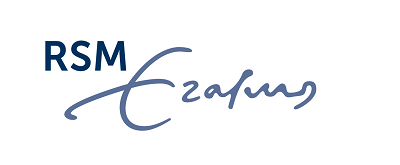- Behaviour
Narcissism in Leadership
RSM researcher reveals how power can exacerbate narcissistic tendencies in people with high levels of testosterone
With President Trump offering to buy Greenland, Brazil’s Jair Bolsonaro rejecting help from the G7 and Boris Johnson proroguing Parliament, narcissistic leaders are making headlines, yet again.
Much leadership development literature emphasises the need for self-awareness. But when this tips over into self-obsession, a grandiose self-image, an inflated ego and feelings of entitlement – the behavioural characteristics of narcissism – it can have a profound influence on developments in the worlds of work, relationships, and politics.
A recent study by Dr Nicole Mead of The University of Melbourne and Anika Stuppy, a researcher at Rotterdam School of Management, Erasmus University (RSM) and colleagues (see below), reveals how power turns people with high testosterone into narcissists. It has been well understood that narcissists are attracted to power; the findings from this research are new in that they highlight the way power itself can lead people to develop narcissistic tendencies – particularly people with high levels of testosterone.
From the Tamburlaine to Trump, history abounds with narcissistic leaders. Even in our temperate times too many business leaders and politicians exhibit the corrosive effects of power. The aim of this new study was to discover what self-related changes might be responsible for those effects. In particular it looked at the possibility that positions of power may corrupt because they inflate narcissism.
Research Findings
Two pathways were considered: i) powerholders abuse their power because having power over others makes them feel superior (grandiosity pathway); or ii) deserving of special treatment (entitlement pathway).
Supporting the entitlement pathway, assigning participants to a position of power (vs. equal control) over a group task increased scores on the Exploitative/Entitlement component of narcissism among those with high baseline testosterone. What is more, heightened Exploitative/Entitlement scores among high-testosterone participants endowed with power (vs. equal control) statistically explained amplified self-reported willingness to misuse their power (e.g. taking fringe benefits as extra compensation).
The grandiosity pathway was not well supported. The Superiority/Arrogance, Self-Absorption/Self-Admiration, and Leadership/Authority facets of narcissism did not change as a function of the power manipulation and testosterone levels.
The destructive effects of power were not due to feelings of superiority but rather feelings that one is special and should be treated accordingly. But taken together, these results suggest that people with high testosterone may be inclined to misuse their power because having power over others makes them feel entitled to special treatment. And the study identifies testosterone as a characteristic that contributes to the development of the socially toxic component of narcissism (Exploitative/Entitlement).
Implications for HR
The research suggests that structural positions of power in organizations and individual differences in narcissism may be mutually reinforcing creating a vicious cycle leading to exaggerated narcissistic characteristic that can potentially have damaging personal, relational, and societal implications.
Blocking the promotion of individuals with high levels of testosterone to positions of power would be unfair and frankly impossible. Many well-behaved high-testosterone leaders perform perfectly well and acceptably. However, business leaders and HR professionals should take account of this research when developing and hiring for leadership positions. Those who already exhibit an air of domination, boss secretaries around, or would steal your chair in a meeting are people who may develop exaggerated damaging narcissistic tendencies when given more power.
Access the full research paper: ‘Power Increases the Socially Toxic Component of Narcissism Among Individuals with High Baseline Testosterone’, Nicole L. Mead, Roy F. Baumeister, Anika Stuppy and Kathleen D. Vohs. Journal of Experimental Psychology: General, 147(4), 591-596.
One of Europe’s leading business schools, and ranked among the top three for research, RSM provides ground-breaking research and education furthering excellence in all aspects of management.
ARTICLES YOU MIGHT LIKE
BOOK REVIEW
An authoritative antidote to executive stress, overwhelm, and burnout
DEVELOPING LEADERS QUARTERLY MAGAZINE AND WEEKLY BRIEFING EMAILS


































